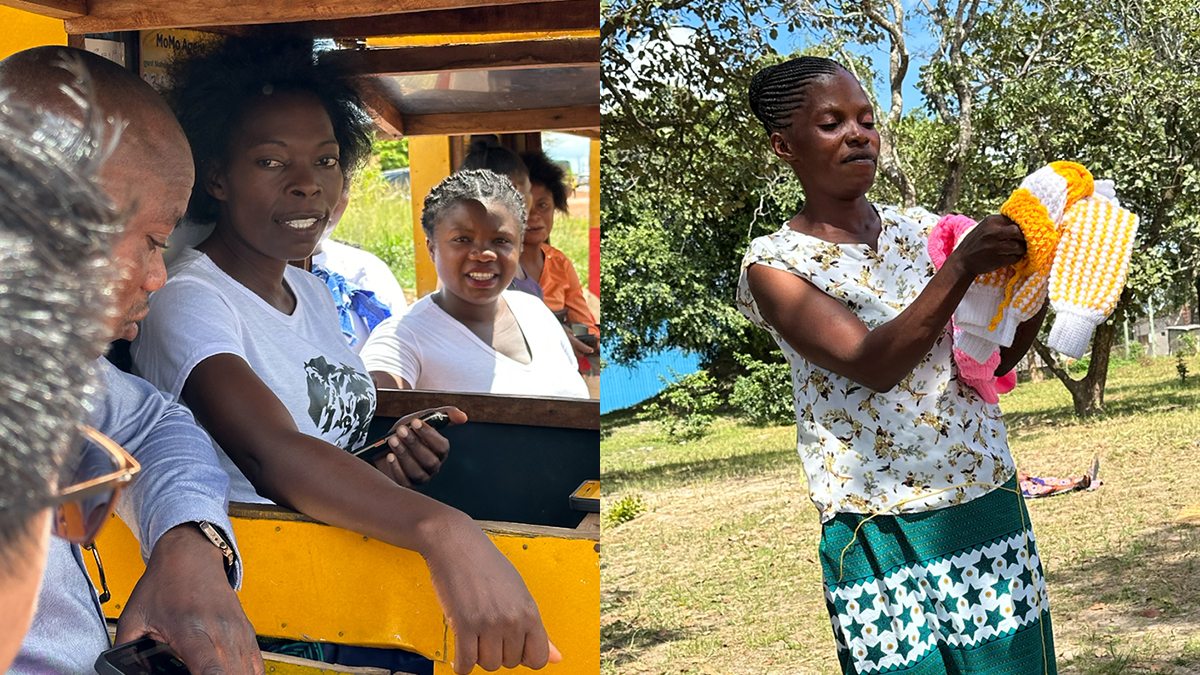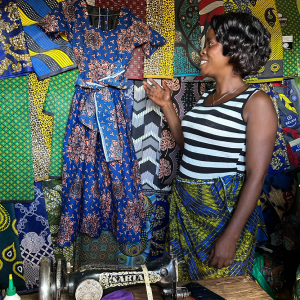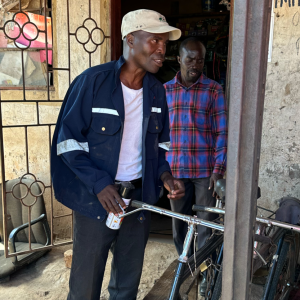Zambia visit shows SSW’s global impact
A UNC School of Social Work delegation saw how their research helped a nonprofit create jobs in rural areas.

A small delegation from the UNC School of Social Work visited the growing rural town of Solwezi (population 90,000) in the North-Western Province of Zambia in March. They came to learn about the impact of local women’s savings and credit groups and their financial literacy training.
The trip was coordinated by Gina Chowa and Rain Masa from the school’s center for Global Social Development Innovations in partnership with longtime collaborator Mathias Zimba, executive director of Rising Fountains Development Program in Zambia.
“As partners, we work together to identify ideas and practices that will change lives for the better,” Masa said. “Researchers and graduate students at the school can help build the evidence needed to demonstrate to policymakers, officials and the business community what is needed to improve the lives of rural Zambians.”
Improving lives in six countries
 Chowa, GSDI director and the school’s associate dean for global engagement, founded GSDI in 2017 to improve lives in low-resource countries. The center’s initiatives span seven countries in Asia and sub-Saharan Africa: Burundi, Ghana, India, Kenya, South Africa, Uganda and Zambia.
Chowa, GSDI director and the school’s associate dean for global engagement, founded GSDI in 2017 to improve lives in low-resource countries. The center’s initiatives span seven countries in Asia and sub-Saharan Africa: Burundi, Ghana, India, Kenya, South Africa, Uganda and Zambia.
Masa is an associate professor who also serves as GSDI’s research director. He has worked collaboratively on both economic security and HIV treatment projects with Rising Fountains, a Zambian nonprofit dedicated to improving the livelihoods of women and children in rural areas.
Masa emphasized how community involvement localizes these economic programs and increases their chance of success and relevance.
“Economic security is the focal point of our work,” said Masa. “We provide funding and, maybe more importantly, we are available to Mathias and his team for ongoing capacity support as well.”
Paving career paths
During the visit to her native Zambia, Chowa was visibly moved at the end of a day spent at a teen center and a church. The delegation heard from over a dozen enthusiastic groups of about 20 women each and the men who had joined in support of them.
“These people. This is why I do the work I do,” Chowa said.
The groups spoke effusively via a translator about how membership in these savings and credit groups helped them build their own small businesses and pay back the very small loans that paved their career paths. Many presenters noted the benefit to their community of providing job opportunities through their business enterprises.
Following the presentations, the delegation went to see the small business owners in action. These included a man who bought spare parts for just one bicycle and now runs a repair shop with several assistants, craftswomen who purchased a sewing machine and yarn to create and sell clothing, and a woman who uses a mobile phone and SIM cards to help townspeople make financial transactions.
“This is not about politics,” said one Solwezi community leader. “I stand in the middle in support of our people helping better their lives and those of their families.”
At the end of the visit, local residents piled baskets full of sweet melons, gourds and pineapples at the front of a small church as parting gifts.
“The bounty and generosity of spirit of the nearly 150 people of Solwezi whom we visited with earlier this month made a lasting impression,” said Alice Washington, a longtime member of the school’s advisory board.
Read more about the Zambia trip and support the UNC School of Social Work’s global partnerships by making a gift to the Global Social Development Innovations Fund.







